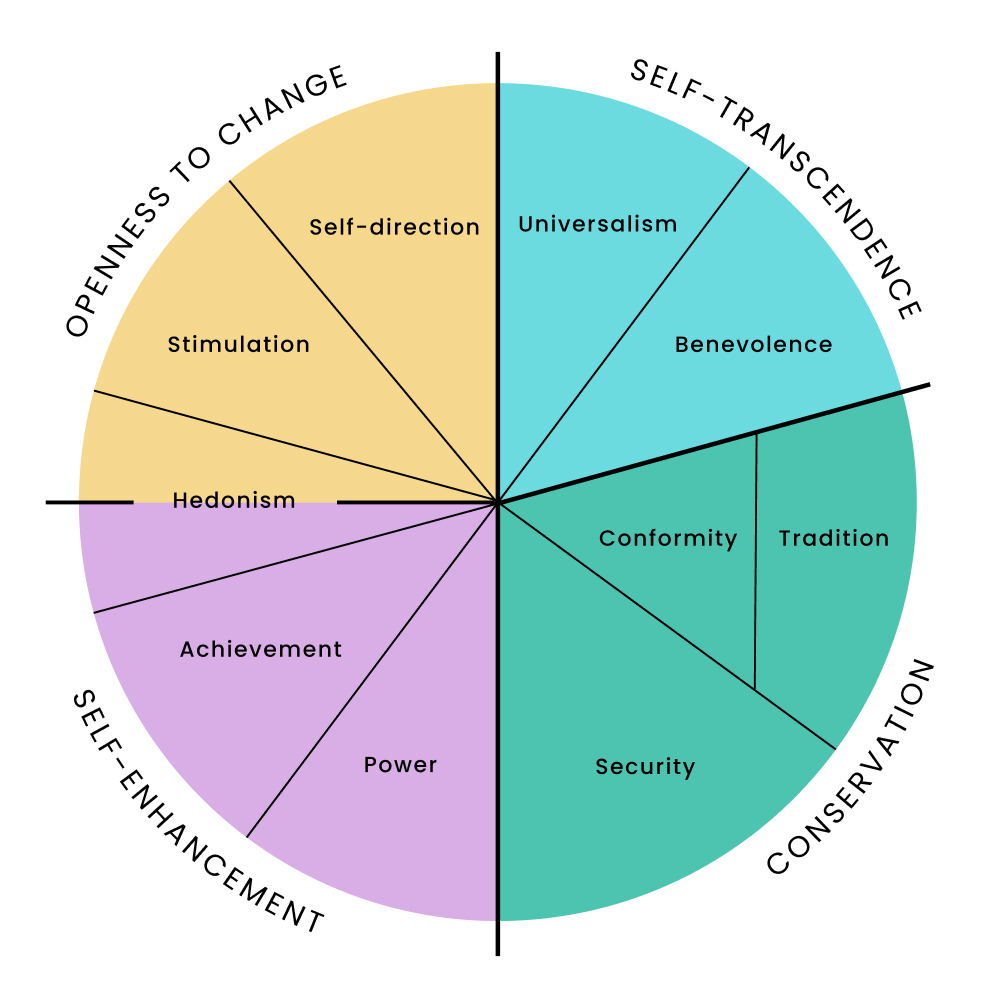Breathe Life Into Your Values
How your organization acts is as important as what it achieves—but they’re intimately connected. Read on to learn how to drive business success using values to inform your culture, decision-making, and performance.

is Junxion's Marketing Manager. He's passionate about the role brands play in creating a better future.
More and more consumers, employees and investors are looking for values-driven brands. Organizations that prioritize profit over everything else are becoming the dinosaurs of the economy, gradually losing more and more market share. With stakeholders increasingly seeking meaningful action on the polycrisis facing society, the importance of being a values-driven brand will only continue to grow.
Economic uncertainty is high, including interest rate turbulence and supply chain disruption. Climate change is bringing on global crises such as increasing wildfires, megafloods, and extreme heatwaves. International conflicts persist at a level unseen since World War II. And the crises of economic and social inclusion are impacting our communities, our workplaces, and our daily lives.
How should you respond to these events as a leader? When the external environment creates difficult choices, values can help leaders make the right decisions. Leaning into your values as a company will help you gain the respect of your stakeholders, including your employees, customers, investors, and others.
Too many companies get it wrong. Despite almost every company listing a set of values that supposedly guide decisions and behaviour, many companies use values purely as a marketing exercise; values are used to enhance brand image without being embedded into organizational culture. For example, the oil company Shell lists one of its core values as ‘honesty,’ which is completely at odds with its systematic, long-term cover-up of climate change effects. Mondelez claims a core value is to ‘treat everyone with care and integrity,’ yet it has been repeatedly charged with unethical supply chain practices. This ‘say / do’ gap is corrosive and unacceptable in the face of the many crises businesses are obliged to help resolve—or at least not to make worse.
There are of course companies that use values effectively. Plant-based drinks manufacturer Oatly has a core value of ‘trust’ and demonstrates this with its honest and simple approach to sustainability reporting, its funding of regenerative agricultural practices, and its rigorous criteria for its supply chain. So how do you become a values-driven organization?
How To Become a Values-Driven Company
Articulate Your Values—in Full
First, initiate a process that explores your organization’s values and identifies whether they resonate with employees. When framing these discussions, we recommend using the Schwartz Theory of Basic Human Values. This framework provides ten basic personal values that are recognized across all cultures. This universality makes the ten Schwartz values applicable to organizations of different types; we have used them with a massive range of clients, from small social ventures to international corporations to global NGOs.

Figure: Four groups of values (Schwartz’s Theory of Basic Human Values)
Consider whether your team might already use different language for shared values. ‘Universalism’ may be understood as ‘inclusivity,’ for example. The conversation about each of the values creates the opportunity for people to share stories of when they felt they or others have lived a particular value at its best. And the stories give clues to how people demonstrate their values in action every day.
After you’ve collected stories of values, some consistent favourites will likely emerge. Choose three or so—certainly not more than five. These will likely be your ‘core values’—the ones you’ll use to make decisions and that will provide the scaffolding for your organizational culture.
Build from Stories to Principles
While stories are always interesting, engaging, and important, they only hint at how we’d like people to behave together at work. The next step is to take the insights from all the stories associated with each value, and define the principles that connect the values to the behaviours outlined in the stories.
For example, at Junxion, a core value is ‘courage.’ Most of our team can recite stories of times when they’ve challenged a client’s strategy for not being bold enough, or spoken up on behalf of marginalized people when they’re not included in dialogue, or even disagreed with their boss about a proposed initiative or direction! Each of these examples maps to a guiding principle: We speak truth to power. We also ask the tough questions, and reject projects that don’t align with our purpose.
Higher-order values like ‘courage’ can be vague (even when good definitions are shared), and specific behaviours can be so distinctive from one situation to the next. Well articulated principles, though, offer guidance, rather than strict direction, so they’re both more useful and more inspiring. (And those are three of the five factors of good guiding principles, as defined by Michael Quinn Patton in his Principles Focused Evaluation.)
Embrace Values-Based Leadership
Leading from values is primarily about using values as a lens in decision-making. As a leader, you’re tasked with a multitude of dilemmas. Should you invest in R&D and innovation to stay competitive or focus on improving existing, successful operations? Should you take the opportunity to acquire another firm or accelerate hiring as a way to stimulate growth, or should you develop your firm more incrementally? Should you provide flexible working hours or require everyone to be in the office every day?
Use your company values and principles to guide these decisions and share your thinking process transparently with your employees. These stories could well become the legends of your company’s brightest days. Now more than ever, it’s how we behave with each other that will define our legacies as leaders, as colleagues and collectively as organizations. Today, the ‘how’ is as important as what we achieve.
Measure Your Values
It’s very difficult to assess whether you’re values-driven without any form of measurement. Absent any measurement, assessments are subjective, at best, and unhelpful in identifying opportunities to improve. Values measurement helps your company or non-profit constantly improve on being driven by values—but measuring the values themselves is so high-level that results may also be meaningless, and measuring behaviours is too specific and granular to present ‘best practices.’ Principles strike the right balance, presenting guidance that is evaluable and developmental—Patton’s final two factors from Principles Based Evaluation. Evaluable, meaning they can be evaluated through quantitative surveys, and developmental, meaning the principle allows for application in diverse and complex situations.
For example, if your value is ‘courage’, and a principle underlining this is ‘we speak truth to power,’ your survey can use Likert scales to gauge ‘To what extent do you feel your colleagues speak truth to power?’ You can compare progress across years and between departments, offices, or even countries to identify successful values-based leadership and areas for improvement. You can also celebrate the stories of success, helping everyone to learn and embrace excellence.
Bringing together values, the principles underpinning them, and exemplar stories in a values-driven approach to leadership is one significant factor in creating a healthier organizational culture. Being values-driven is not about marketing; it’s about aligning organizational capacity to an authentic, enduring set of guiding principles that together enhance employee engagement, cultivate positive social impact, and distinguish exceptional brands. In short, a strong, values-driven culture leads to strong results and performance.
Want help becoming a values-driven organization? We’ve helped businesses and non-profits across the world use values to supercharge their culture. Let’s get started for your organization.
